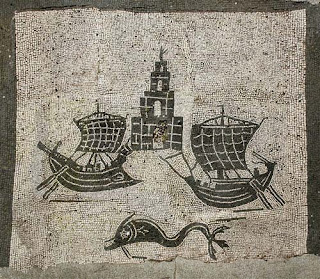I would say that the Ancient Roman production of wheat was not sustainable. As mentioned in my previous post, their system required many people since they didn't have access to the inventions we have currently. There was many people required to grow the wheat: people to plow the fields, add manure, maintain the fields (e.g. weeding), people to thresh the grains, sieve it, and create meal. This all was a fairly long process that didn't provide much profit.
The emperors in the Roman Empire desperately wanted to avoid famine, so they would make farmers donate much of their excess grains in the form of taxes to feed the poor for free. This definitely did not encourage farmers to grow much excess since their taxes would be higher, meaning that Rome ended up not having much grain in storage.
Grain was such a staple of the Roman diet though, so Rome had to have grain imported from Egypt, Sicily, and the Mediterranean . The Roman Empire so desperately needed grain that the punishments for importers who stopped before delivering the grain to Ostia (official Roman port) included deportation and execution.
 |
| Depiction of Ostia |
It can also be inferred that wheat production led to an increase in slaves owned. There was many people needed and slaves often worked the fields in Ancient Rome, so more wheat would mean more slaves being sold. As for the environment, wheat production helped lead to expansion of the Roman Empire. People were being fed, they were having children, and the Empire expanded along with population. This meant settling more land and using up more resources in the environment. There needed to be more livestock as well so more vegetation was being lost to feed them. This meant less food for other animals who also relied on what the livestock ate which might mean less food for its predators as well.
*
Cited from
Roberts, Paul.
Agriculture and Food Production in Roman Antiquity. Online Article:
https://www.academia.edu/1580228/Roman_Agriculture_and_Food_Production)


No comments:
Post a Comment